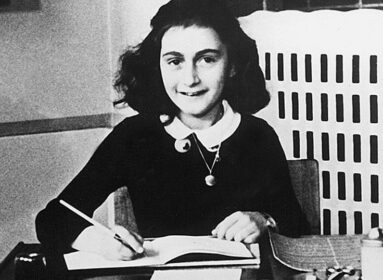
Documentary film reveals another side to the great writer
By Cindy Mindell
Alongside dreams of the Polish shtetl world he left behind in 1935, Isaac Bashevis Singer dreamed of “a harem full of translators.”
“If those translators could be women,” he wrote, “this would be paradise on earth.”
In the first three decades of a long writing career, Singer would achieve the artist’s dream and much more, rising to worldwide fame as one of the most influential Jewish writers of the 20th century and snagging a Nobel Prize for literature along the way. He also fulfilled his other wish: behind the great man scribbled some 40 great women, the young female translators who made his Yiddish writing accessible to an English readership in the U.S. and far beyond.
In the 2014 documentary film, The Muses of Isaac Bashevis Singer, directed by Shaul Betser and Asaf Galay, nine of the surviving women tell their personal stories from the “harem.”
Among them is playwright and author Leah Napolin, who, together with Prof. Joshua Lambert, National Yiddish Book Center, will participate in a Q&A that will follow a screening of the film at the Mandell JCC Hartford Jewish Film Festival on Tuesday, April 5.
“If you ever have a great literary hero and you get a chance to meet them, don’t,” says Napolin, who adapted Singer’s Yentl the Yeshiva Boy into a Broadway play. The production ran from 1975 to 1976.
“Literary heroes are people and, like everybody else, they have their flaws,” Napolin says. “Sometimes, the greater the figure, the greater the flaws. You never know how somebody becomes significant, rich, famous. There are always dark sides.”
Growing up, Napolin counted Bashevis Singer among her favorite authors. “He is a great short-story writer who mines this rich vein of imagination and beauty of language that is in Jewish literature,” she says.
Napolin began to form a more complete picture of her idol in 1974, after she had written the stage version of Yentl. She and director Robert Kalfin spent three days consulting with Singer, to make sure that the shtetl world described in the script rang authentically.
“As the author of the original material, he was certainly going to get a substantial royalty from the play, whether he was the co-writer of the play or not,” Napolin says. “Two weeks before the opening night at the Eugene O’Neill Theatre on Broadway, he told me, ‘I want to be listed as the co-playwright and if you don’t, I won’t let you produce the play.’”
It wasn’t enough for Singer to have his name listed on the theater marquee, above Yentl. Napolin conceded and Singer became immortalized as the co-playwright who never was.
After Yentl closed on Broadway, Napolin was invited to a cocktail party. “The host said, ‘There’s someone I want you to meet. She knows Isaac Bashevis Singer too; she’s one of his translators,’” she recalls. “The host introduced me to a young woman who said to me, ‘Did [Singer] do the same thing to you as he did to me? I worked with him translating a story and then he said, ‘Unless you credit me as being the co-translator of the story, I won’t let you publish it,’” and of course, that reflected exactly what had happened to me, because he had nothing to do with the writing of the play.”
Forty years later, she got a call from Asaf Gulay, inviting her to be part of the new documentary film. When she watched the completed film, she had a revelation.
“What I discovered from the documentary is that this was not unusual behavior for him,” she says. “I don’t think it’s something he could have done with famous male writers like Saul Bellow, but he certainly could do it with impressionable younger women, and did.”
Idols die hard, and Singer is still a literary hero in the eyes of Napolin, who devoured his entire oeuvre as a young reader.
“I think it’s interesting and important, what Asaf and Shaul have done, in documenting his relationships with women and how that contributed to his fame and career,” she says.
The Muses of Isaac Bashevis Singer will screen at the Mandell JCC Hartford Jewish Film Festival, Tuesday, April 5, 1 p.m., at The Emanuel Synagogue, 160 Mohegan Drive, West Hartford. Followed by a Q&A with Leah Napolin and Prof. Joshua Lambert. For tickets and information visit hjff.org or call (860) 231-6316.








 Southern New England Jewish Ledger
Southern New England Jewish Ledger










